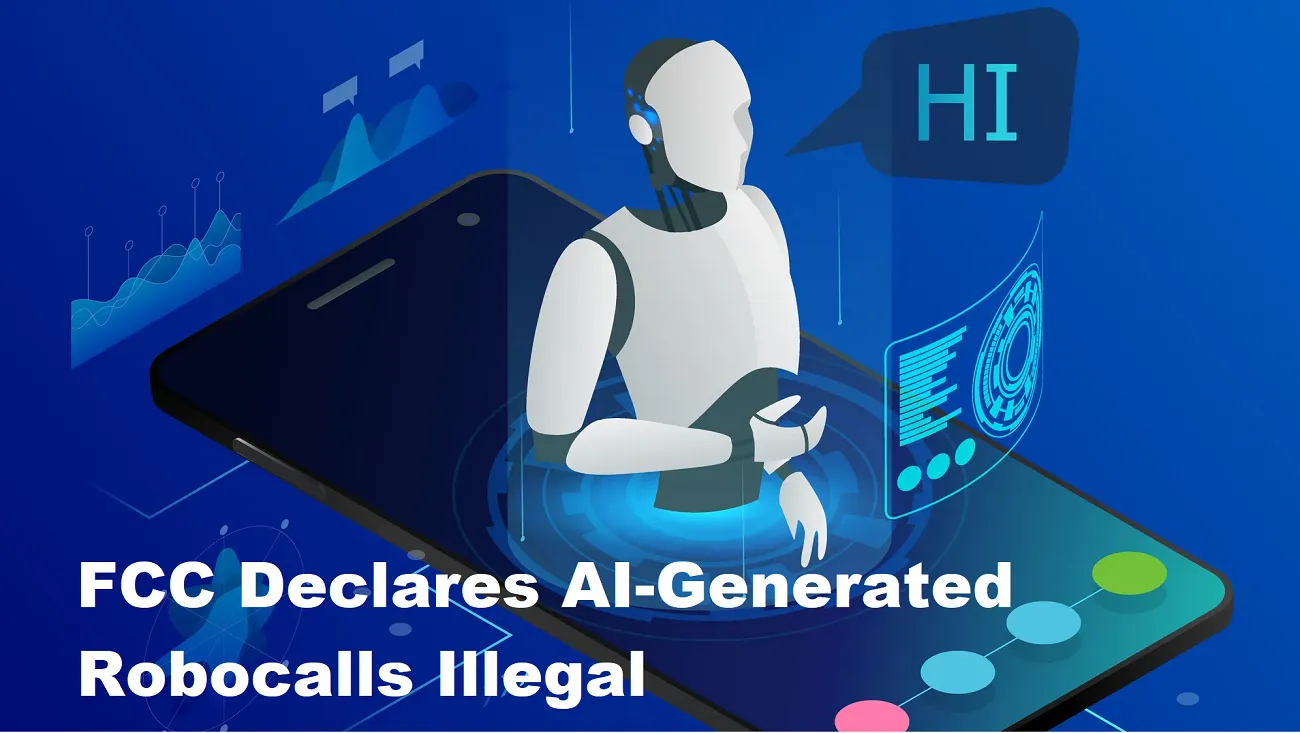FCC Declares AI-Generated Robocalls Illegal: The war against robocalls just took a significant step forward with the FCC’s groundbreaking decision classifying AI-generated voices as “deceptive” and hence illegal when used in automated scams. This move comes in response to the rising threat of sophisticated voice cloning technology used to impersonate trusted figures and manipulate unsuspecting victims. While this may not completely silence the annoying deluge of “fake Joe Bidens” this election season, it marks a crucial victory for consumer protection.
Also Read: Google Gemini is the New Bard, the Future of Conversational Assistant
Existing Law & New Clarification:
Although robocalls were largely prohibited under the Telephone Consumer Protection Act (TCPA), ambiguity arose regarding AI-generated voices specifically. This ruling removes that ambiguity, explicitly classifying them as “artificial and prerecorded messages,” falling under the same restrictions as traditional robocalls. The FCC emphasized that consumer consent is essential, and these AI-powered calls are inherently deceptive without it.

The Biden Impersonation Case & Legal Implications:
The recent incident involving impersonators calling New Hampshire residents as President Biden served as a catalyst for this clarification. While illegal under existing voter suppression and robocall regulations, the AI element added a new layer of complexity. This ruling strengthens legal tools for prosecuting such cases and sets a precedent for future AI-powered scams.
Benefits & Deterrence:
The ruling empowers consumers with the “right not to receive” and be “cautious” about AI-powered calls. This fosters increased awareness and empowers individuals to protect themselves. Additionally, it acts as a strong deterrent for scammers, knowing their tactics are now explicitly illegal and carry potential legal consequences.
Beyond AI Robocalls: Broader Regulatory Issues:
While this is a win, the war against deceptive practices and consumer exploitation is far from over. This victory comes amidst concerns about a Supreme Court decision potentially weakening regulatory agencies’ ability to adapt and respond to evolving threats. The article highlights the potential negative consequences of such a decision, including an environment ripe for robocalls and environmental pollution.
Call to Action:
The article concludes by encouraging individuals to report AI-powered robocalls to local authorities and participate in initiatives like the “anti-robocalling league” established by attorney generals. This emphasizes the importance of collective action and vigilance in the fight against deceptive practices.

